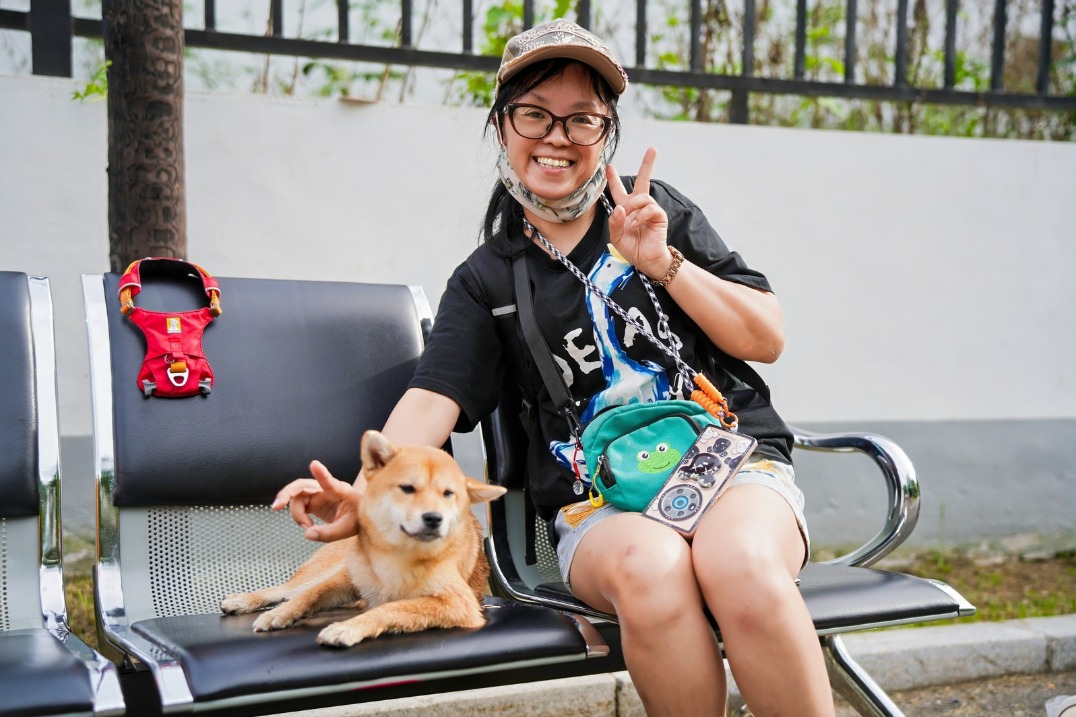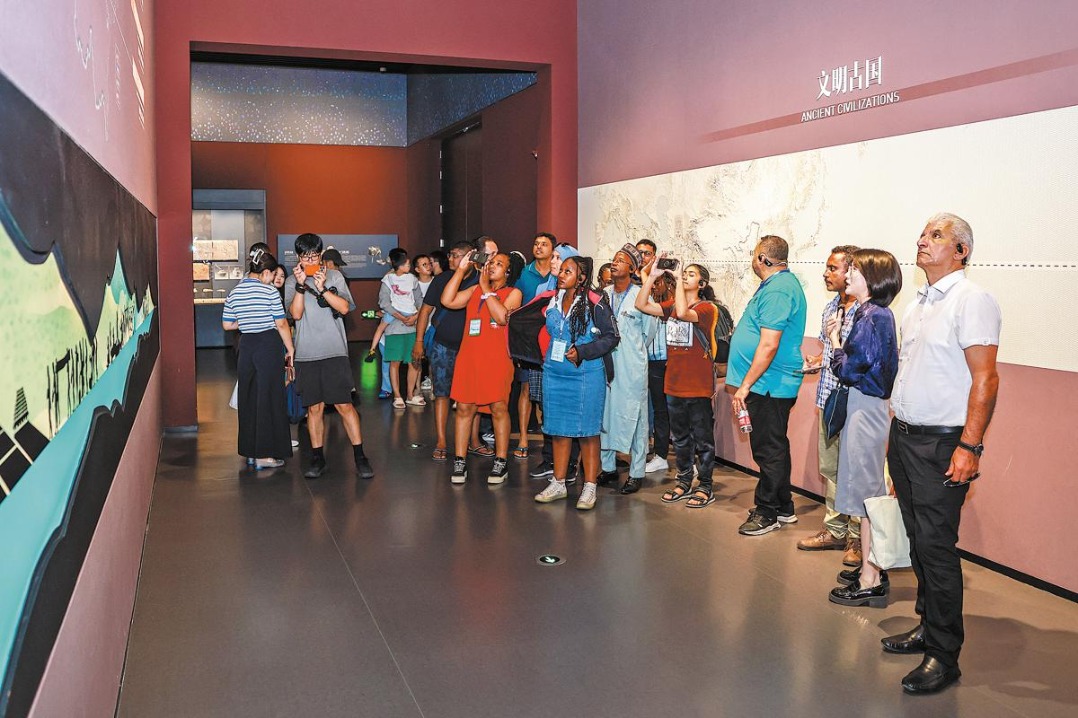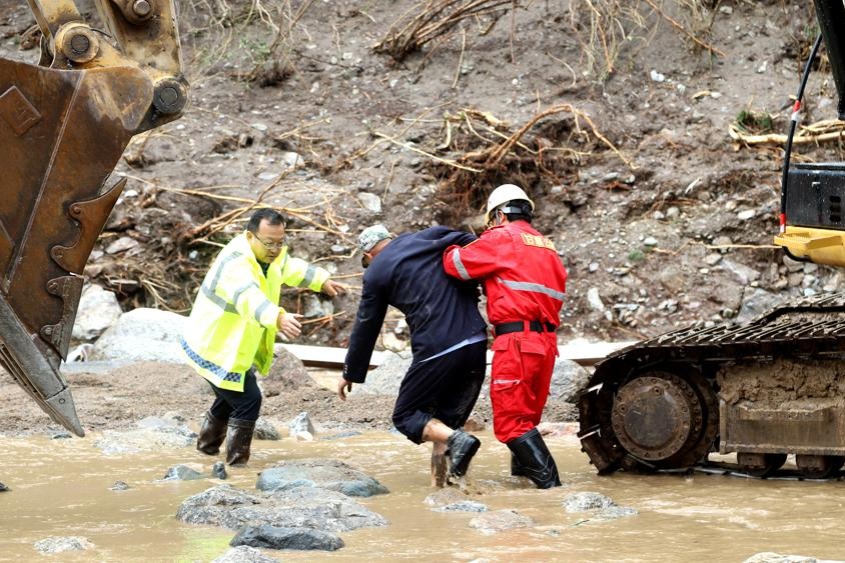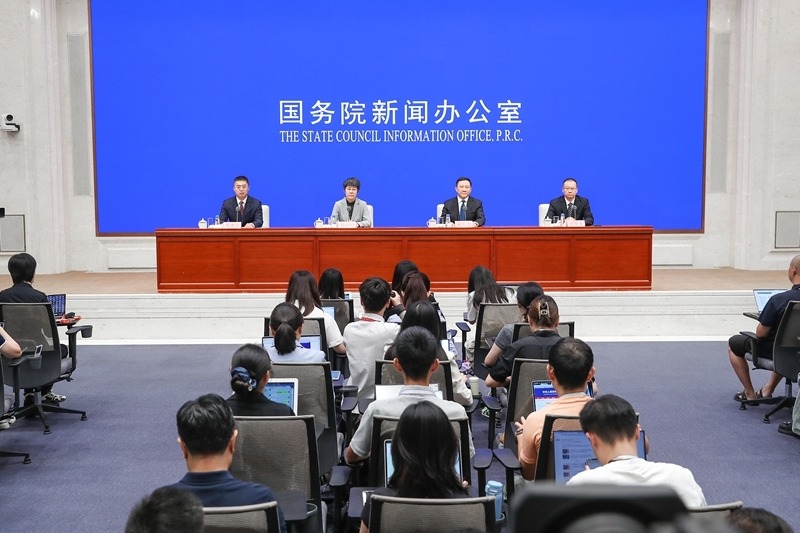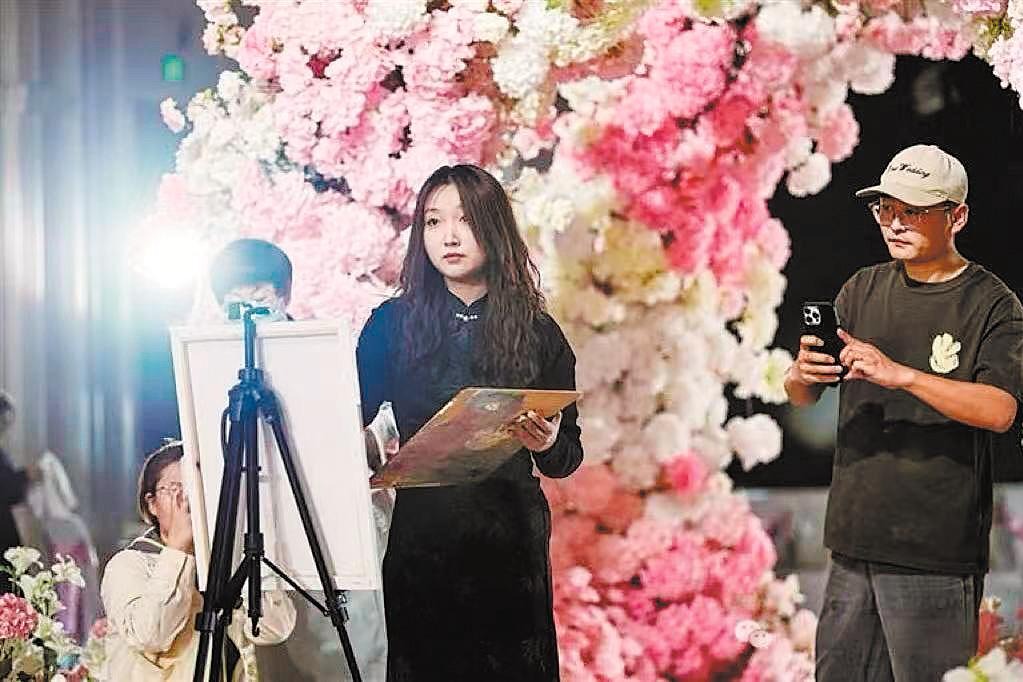Researcher empowers future innovators
Students provide sustainable fixes to rural challenges

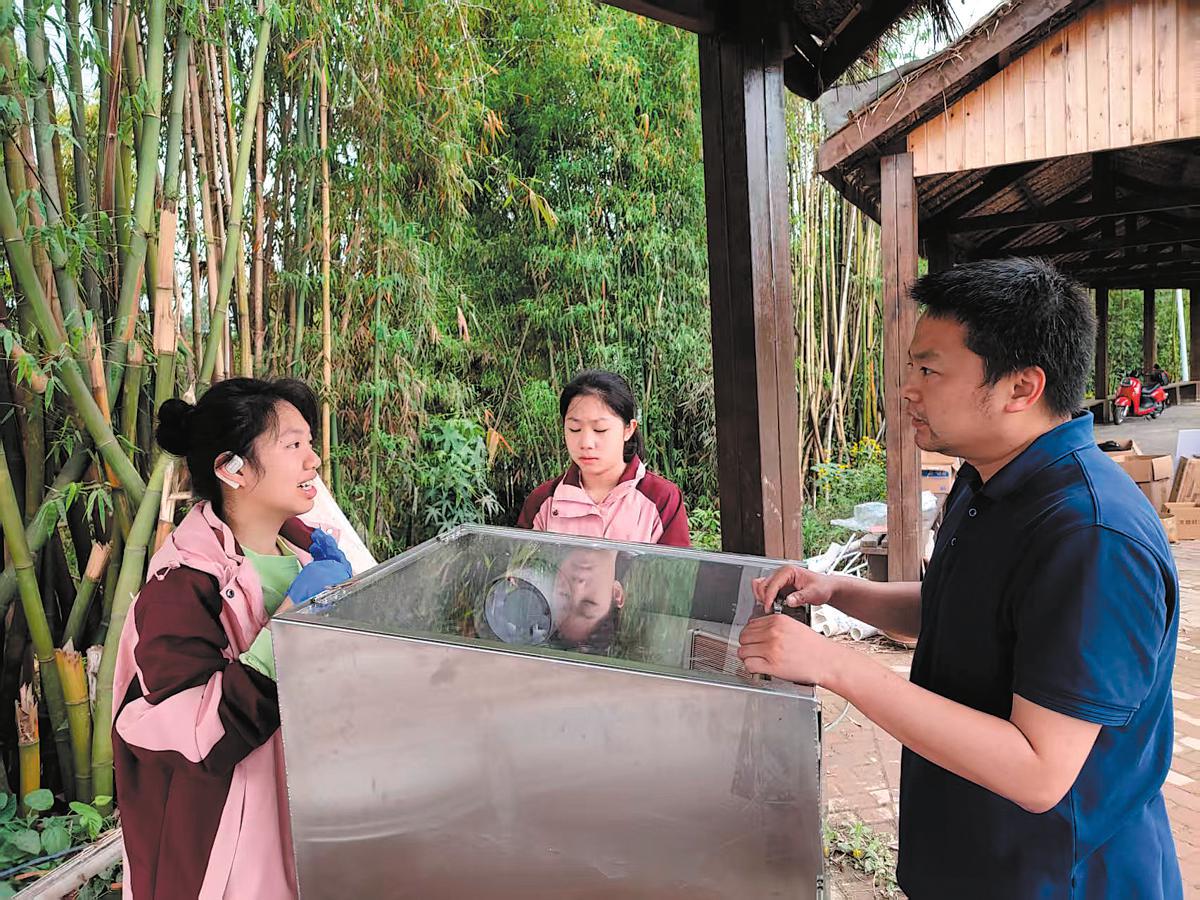
This May Day holiday, Zhou Chuanbin returned to Gannian village in Sichuan province, where he has spent the last seven holidays with science-loving middle school students.
"Among researchers, the fear of speaking to oneself is most prevalent," said 44-year-old Zhou, a researcher at the Research Center for Eco-Environmental Sciences of the Chinese Academy of Sciences, standing in front of a newly built ecological monitoring station, with an electronic screen behind him displaying real-time pond water quality data.
In 2011, when he first encountered rural environmental protection projects, his high-tech ecological solutions repeatedly hit roadblocks: intelligent compost bins were being used by villagers as chicken coops, and environmental protection systems had been abandoned due to their complexity.
"The villagers' reactions taught me that to empower rural areas with technology, three questions must be answered: is it usable, understandable and sustainable?" he said.
This reflection led to Zhou's "progressive innovation" in Gannian. Over the past three years, he and students from across the country formed teams under the CWDF Samsung STEM Girls Program, gradually submitting three "grounded" solutions.
In 2023, the Black Soldier Fly kitchen waste treatment system converted organic waste into poultry feed, processing up to 200 kilograms daily. Last year, the "Xixian Beautiful Toilet" project achieved urine resource recovery through turbidity sensors, breaking traditional separation technology limitations.
The most recent project, a smart ecological floating island completed this year, integrated 10 student patents, improving pond water quality.
A villager pointed to the equipment beside a guesthouse and exclaimed: "These 'iron lumps' are really useful. Now, city folks come here to take photos and say that our toilets are cleaner than cafes."
Qin Ming, a freshman from Chengdu Tianfu High School, said, "Zhou's first lesson in the lab was teaching us to view failure correctly."
Last year, the team faced motor overheating issues for two weeks while debugging the kitchen waste treatment device. While the students were discouraged, Zhou converted the scrapped parts into teaching aids.
"These deformed metals record heat conduction laws more vividly than textbooks," he said.
This "error-tolerant education" deeply influences the youth. Du Bing from Yunnan province put a fish-shaped floating island sensor layout through more than 30 failed tests.
The philosophy stems from Zhou's research experience. In a 2011 environmental project, the environmentally friendly dry toilet system he led to develop was not promoted due to its complex operation.
"That 'Waterloo' made me realize that technological innovation must account for people's livelihoods, not just aim for technical peaks," he said.
Now, in Gannian, all projects must pass the "three-question test" — Can they be repaired with local materials? Can villagers learn to operate them in three minutes? Is the annual maintenance cost per household less than 300 yuan ($42)?
This pragmatic approach made the Black Soldier Fly breeding boxes self-sustaining, with villagers using them to process feed to raise chickens, increasing annual incomes by over 2,000 yuan per household.
At 6 am in Gannian, Zhou often conducts lessons with students on the field. Beijing middle school student Bai Yunhui described the experience as a "five-senses teaching method". "He makes us listen to pump vibrations, feel the stickiness of soils with different moisture levels and even smell algae under various light conditions," she said.
Scientists can easily become insulated by their profession, while children are natural boundary-breakers, he said.
Beijing student Bai Zixi drew inspiration from her grandmother's oil-absorbing soil method to develop degradable biomaterials; the Xinjiang team, inspired by traditional karez well systems, designed a "gravity-driven purification system".
An engineer from Beijing, Wang Lei, marveled: "These solutions possess both technical sharpness and the warmth of life. Professor Zhou acts like a bridge, connecting laboratory precision with rural wisdom."
Zhou's phone holds a precious "patent wall": certificates of 87 inventions led by middle school students, recording seven years of innovation footprints. What gratifies him more is the transformation of individuals — dozens of early participants chose environment-related majors.
Standing beside the newly completed smart floating island, Zhou watched the students adjust the equipment. The once tearful Bai Yunhui, upset over device failures, now expertly programs the aeration system.
When asked about the motivation behind his seven-year dedication, he pointed to the flashing LED indicators on the floating island: "Look at these light spots. Don't they resemble new sprouts breaking through the soil? What we must do is protect them and allow them to illuminate farther lands."
Contact the writers at yandongjie@chinadaily.com.cn

















